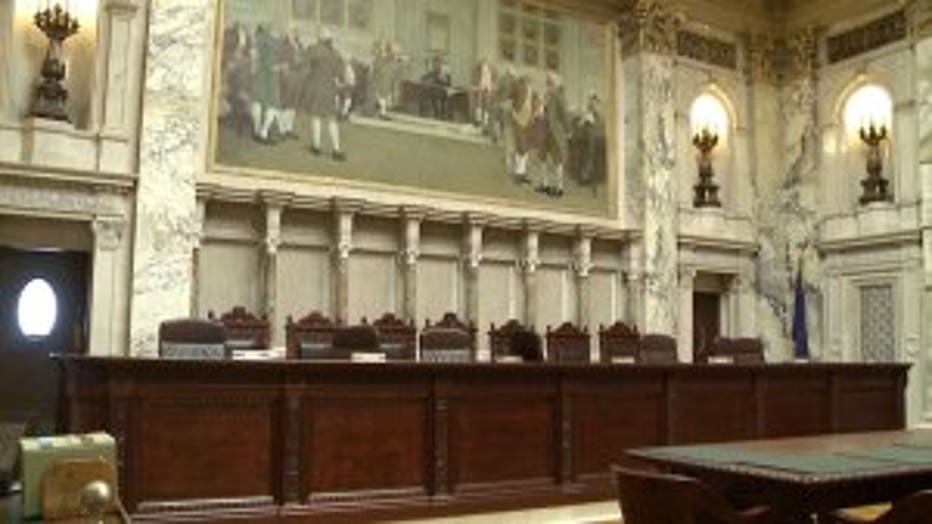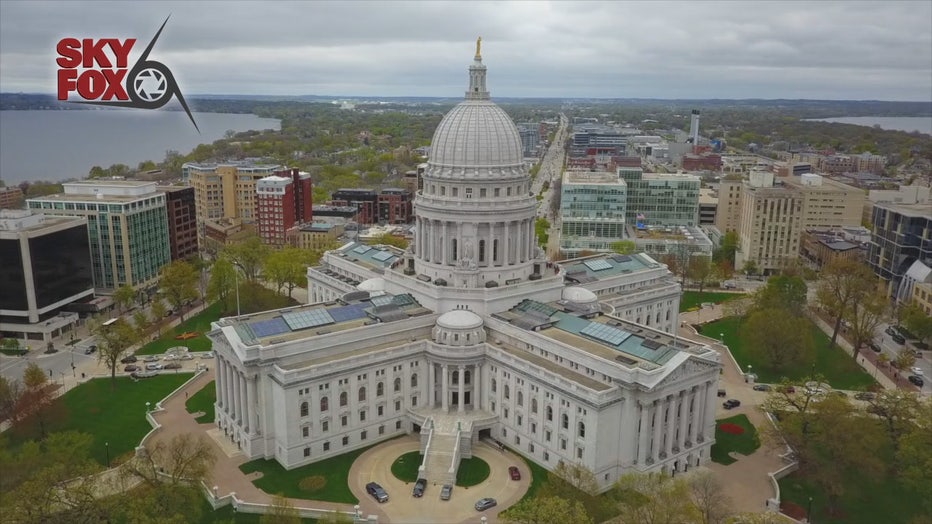Wisconsin Supreme Court hears redistricting arguments

Wisconsin redistricting, state supreme court hears arguments
The Wisconsin Supreme Court on Wednesday heard oral arguments in the high-stakes legal battle over political district boundary maps.
MILWAUKEE - The Wisconsin Supreme Court on Wednesday, Jan. 19 heard oral arguments in the high-stakes legal battle over political district boundary maps.
In the battleground state, where statewide races have been decided by close margins, the court's decision could potentially impact who represents residents in the state.
The state supreme court is weighing redistricting for the first time since 1964. Currently, Republicans control more than 60% of the Wisconsin Legislature.
SIGN UP TODAY: Get daily headlines, breaking news emails from FOX6 News
In the fall, justices said they would use new maps with the "least change" from the current maps, which were drawn by Republicans a decade ago.
"It seems to me that our decision's that we want maps that comply with the law," Justice Brian Hagedorn said. "I didn’t see any argument from any party that the governor's maps or any other map would be struck down as violating the Wisconsin constitution, if a case came before us."

Wisconsin Supreme Court
Various groups have submitted proposed maps, including the Republican-controlled legislature, Democratic Gov. Tony Evers, lawmakers of both parties and other groups.
"The legislature’s map represents the partisan policy choices of Republican legislators, and it does not adhere to least change, so it should not be chosen by the court," said Tamara Packard, state Democratic caucus attorney.
FREE DOWNLOAD: Get breaking news alerts in the FOX6 News app for iOS or Android.
"The legislature’s position is that the governor and bloc plans are illegally…they violate the U.S. constitution. They are racial gerrymanders," Wisconsin Legislature Attorney Taylor Meehan said.
That issue of Black voters was also brought up by the organization Black Leaders Organizing for Communities (BLOC). BLOC Attorney Douglas Poland, asked by a justice if white residents of Shorewood and neighboring lakeshore communities would not for a Black candidate, said "that is what the statistics show."
The once-a-decade U.S. Census leads to a once-a-decade redistricting, using the new population figures to create new legislative maps.

Wisconsin State Capitol, Madison
"Ever since the '60s when the U.S. Supreme Court ruled on the principle of one person, one vote, all districts have to be very, very close to each other in terms of the number of people, but they can slice it any way they want to based on neighborhoods and municipalities," said Mordecai Lee, University of Wisconsin-Milwaukee professor emeritus.
The court is expected to rule within weeks as ot which proposed maps should be used. The clock is ticking; every Wisconsin Assembly seat and a portion of Wisconsin Senate seats are up for grabs in fall.
Still, the Wisconsin Supreme Court's decision may not be the end of redistricting fights. Another lawsuit is pending in federal courts.
Featured
Wisconsin election investigation, Voces de la Frontera subpoenaed
Voces de la Frontera Action said that special investigator Michael Gableman sent a subpoena seeking election records from the organization.
Featured
VP Kamala Harris, Milwaukee visit set for Jan. 24
Vice President Kamala Harris will travel to Milwaukee on Monday, Jan. 24.
Featured
New contract for state troopers approved by Wisconsin lawmakers
A legislative committee signed off Wednesday on a new two-year contract for Wisconsin's state troopers.




